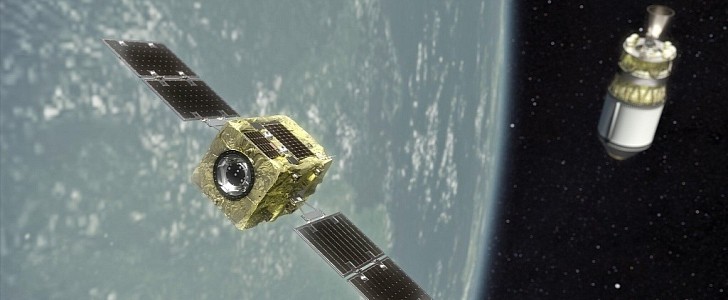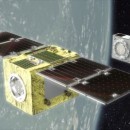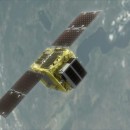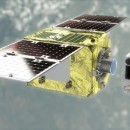Let's face it – the space junk that's slowly suffocating our planet is going nowhere. But, as the debris keeps piling up, many companies are working hard to develop new technologies that will capture and remove some of the large-scale garbage from orbit.
Space service provider Rocket Lab announced it has signed a dedicated launch contract with Astroscale Japan, a subsidiary of satellite services company Astroscale Holdings. The company also develops space debris removal technologies that monitor and track space junk.
Recently, Astroscale has successfully tested for the first time its ELSA-d orbital debris removal satellite ability to capture a spacecraft in space. In a demo performed on August 25th, ELSA-d used a magnetic capture system. In addition, this test demo proved the satellites' capability to dock with a spacecraft, such as an inactive satellite.
Now, Astroscale is planning to send another satellite into orbit called the Active Debris Removal by Astroscale-Japan (ADRAS-J), which has been selected by the Japan Aerospace Exploration Agency (JAXA) for its Commercial Removal of Debris Demonstration Project.
The satellite will be carried by Rocket Lab's Electron rocket, which will take off from the company's Launch Complex 1. Once deployed into a precise orbit by Electron's Kick Stage, the ADRAS-J satellite is planned to rendezvous with a spent upper stage rocket body.
ADRAS-J is designed to demonstrate proximity operations and take pictures of the rocket body while also providing observational data to help researchers better understand the debris environment. The mission's intended second phase, which has yet to be completed, aims to show the debris' de-orbit.
It will be a challenging mission, as it requires precise orbital insertion to allow the spacecraft to reach the rocket stage. "Rendezvousing with a piece of debris on orbit, traveling at around 27,000 km per hour, is a highly complex task that requires absolute precision when it comes to orbital deployment," explains Rocket Lab Chief Executive Peter Beck.
However, he's confident that Rocket Lab will perform accordingly as the company's Electron's Kick Stage has shown the ability to deploy satellites precisely where they needed to go across 18 missions. The launch of ADRAS-J is scheduled to take place in 2023.
Recently, Astroscale has successfully tested for the first time its ELSA-d orbital debris removal satellite ability to capture a spacecraft in space. In a demo performed on August 25th, ELSA-d used a magnetic capture system. In addition, this test demo proved the satellites' capability to dock with a spacecraft, such as an inactive satellite.
Now, Astroscale is planning to send another satellite into orbit called the Active Debris Removal by Astroscale-Japan (ADRAS-J), which has been selected by the Japan Aerospace Exploration Agency (JAXA) for its Commercial Removal of Debris Demonstration Project.
The satellite will be carried by Rocket Lab's Electron rocket, which will take off from the company's Launch Complex 1. Once deployed into a precise orbit by Electron's Kick Stage, the ADRAS-J satellite is planned to rendezvous with a spent upper stage rocket body.
ADRAS-J is designed to demonstrate proximity operations and take pictures of the rocket body while also providing observational data to help researchers better understand the debris environment. The mission's intended second phase, which has yet to be completed, aims to show the debris' de-orbit.
It will be a challenging mission, as it requires precise orbital insertion to allow the spacecraft to reach the rocket stage. "Rendezvousing with a piece of debris on orbit, traveling at around 27,000 km per hour, is a highly complex task that requires absolute precision when it comes to orbital deployment," explains Rocket Lab Chief Executive Peter Beck.
However, he's confident that Rocket Lab will perform accordingly as the company's Electron's Kick Stage has shown the ability to deploy satellites precisely where they needed to go across 18 missions. The launch of ADRAS-J is scheduled to take place in 2023.







